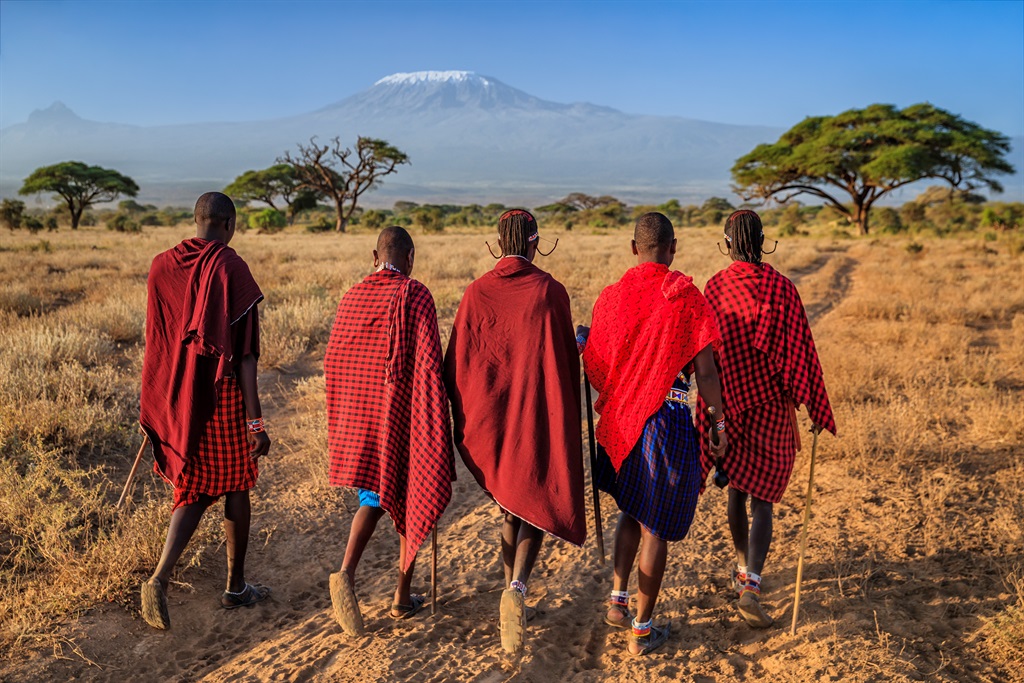Nestled in the scenic expanse of the Great Rift Valley, near the renowned Serengeti National Park, lies the village of Ololosokwan. Surrounded by vast stretches of grasslands, this humble settlement comprises a handful of unpaved streets where sheep, goats, chickens, and emaciated cows roam freely. However, beneath its tranquil facade, Ololosokwan finds itself at the heart of a long-standing conflict over land ownership, entangling cattle herders, the Tanzanian government, and a company known as Otterlo Business, allegedly catering to hunting trips for royalty from the United Arab Emirates, as stated by the United Nations.
The struggle for land rights in Ololosokwan has been brewing for years, as various stakeholders vie for control over this coveted territory. The clash primarily revolves around the competing interests of cattle herders, who rely on the land for grazing their livestock, the Tanzanian government seeking to manage and allocate resources, and Otterlo Business, whose involvement raises concerns about the exploitation of the land for hunting purposes.
Ololosokwan’s inhabitants have long lived in harmony with the land, their way of life intricately woven into the fabric of the grasslands that surround them. However, encroachments by external entities have disrupted the delicate balance, triggering tensions and raising questions about the rights of local communities to their ancestral lands. The Tanzanian government’s role in regulating and managing the land, while aiming for sustainable development, has been subject to scrutiny, with allegations of insufficient consultation and protection for the interests of the community.
The presence of Otterlo Business, accused of facilitating hunting trips for foreign royals, further complicates the situation. Concerns have been raised about the impact of hunting activities on the local ecosystem, including the wildlife that inhabits the Serengeti region. Conservationists worry that the unregulated pursuit of trophy hunting could disrupt the delicate biodiversity of the area, endangering vulnerable species and undermining the ecological balance carefully preserved for generations.
The struggle for land ownership in Ololosokwan encompasses not only questions of legal rights but also raises broader issues of environmental conservation, community empowerment, and sustainable development. The United Nations’ involvement underscores the international significance of the dispute, amplifying the need for a comprehensive and equitable resolution that respects the rights of local communities and safeguards the ecological integrity of the region.
Efforts to address the conflict require a multi-dimensional approach. Balancing the needs of cattle herders with conservation concerns and sustainable land management is crucial. Meaningful engagement and consultation with the local community, ensuring their voices are heard and their rights are protected, should form the cornerstone of any resolution. Transparent and inclusive dialogue involving all stakeholders, including government authorities, local communities, conservation organisations, and Otterlo Business, is essential to forge a path forward that promotes harmony, sustainability, and social justice.
Preserving Ololosokwan’s rich cultural heritage and protecting the delicate ecosystem of the Serengeti region are shared responsibilities that extend beyond national boundaries. International cooperation, in collaboration with the United Nations and other relevant entities, can contribute to finding sustainable solutions, combining conservation efforts with the socio-economic needs of local communities. By recognising the intrinsic value of the land and embracing a holistic approach, a balanced outcome that respects the rights of all stakeholders can be achieved.

